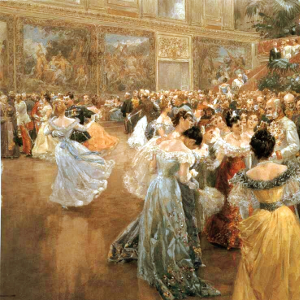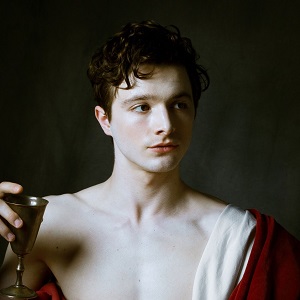Romano di Grimani is the son of the English textile merchant Mr. John Rash and the scion of a noble Venetian family, the much younger Lady Lucia di Grimaldi. Raised in a family of relative wealth, with a mostly-absent father and a nanny who preferred to spoil him rotten when his mother wasn't doing the same thing.
Romano did poorly in formal education and often got into fights with his fellow students. It took much persuasion, and the support of his mother, to persuade John Rash to allow his son to pursue a career in the arts, doing the usual tour of the continent and training to become a painter, a poet and (scandalously!) a performer.
After returning from his tour, Romano set himself up in the London scene and was betrothed to the prim and proper Ms. Julia Blackstone, just sixteen at the time, though this did not stop him from pursuing a great many affairs with both ladies of substance and young men and women of the working class. Much of his time was spent away from the family home, roaming the streets of London to drink, make merry and discover the 'real' life of the city.
During one of these roamings he met Julius Laphan, a Toreador who took an interest in his artistic talent and Embraced him, almost on a whim, before promptly leaving for Paris.
After his embrace, he took on his mother's maiden name to avoid being linked too closely to his mortal family, and also because he was ever closer to his mother and her family's' rich heritage as part of the Venetian cultural scene. He has thus far avoided dealing substantively with his fiancee and their family home, returning only for brief visits during the night.
The Embrace changed Romano less than one might expect. He is still a hedonist who roams the streets in search of truth, passion, bravery and companionship, though he now prefers blood to the pleasures of wine. He despises the prim hypocrisies of the upper classes and finds truth in the simple, down-to-earth people of the working class, wanting to portray their stories in art.
At the same time he sees himself as elevated high above all these classes, as an artist over whom no-one could properly wield authority. As Oscard Wilde would later write in his essay on Socialism:
It has been stated that under despotisms artists have produced lovely work. This is not quite so. Artists have visited despots, not as subjects to be tyrannised over, but as wandering wonder-makers, as fascinating vagrant personalities, to be entertained and charmed and suffered to be at peace, and allowed to create. There is this to be said in favour of the despot, that he, being an individual, may have culture, while the mob, being a monster, has none. One who is an Emperor and King may stoop down to pick up a brush for a painter, but when the democracy stoops down it is merely to throw mud. And yet the democracy have not so far to stoop as the emperor. In fact, when they want to throw mud they have not to stoop at all.
— Oscar Wilde


